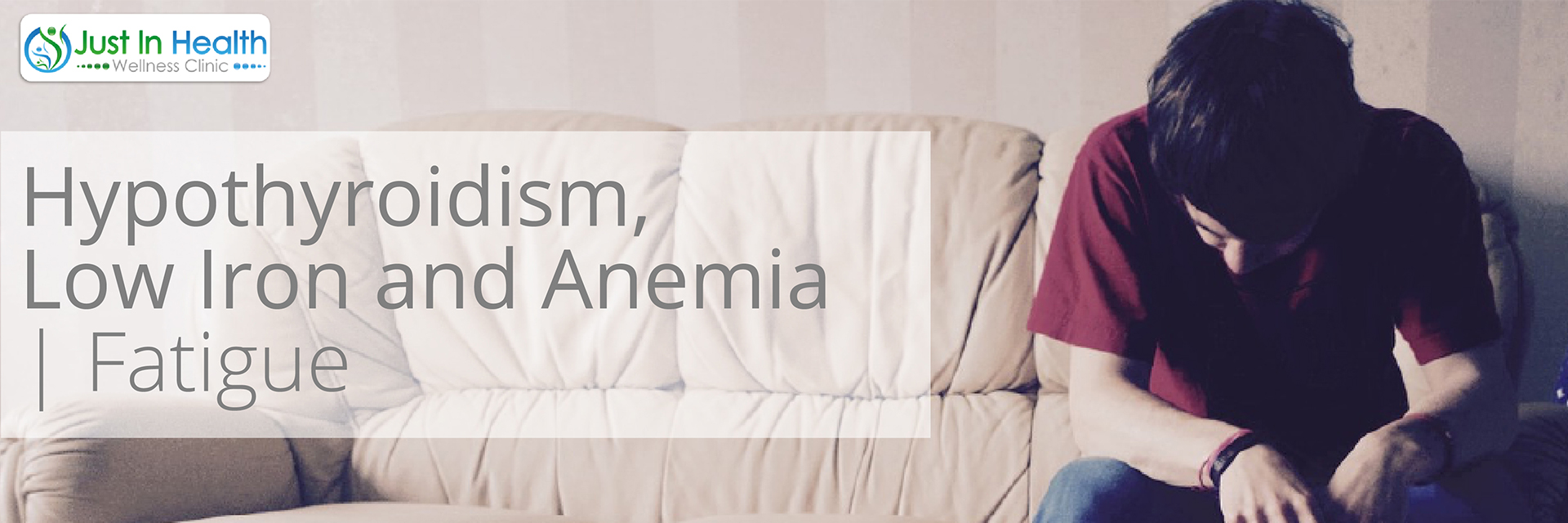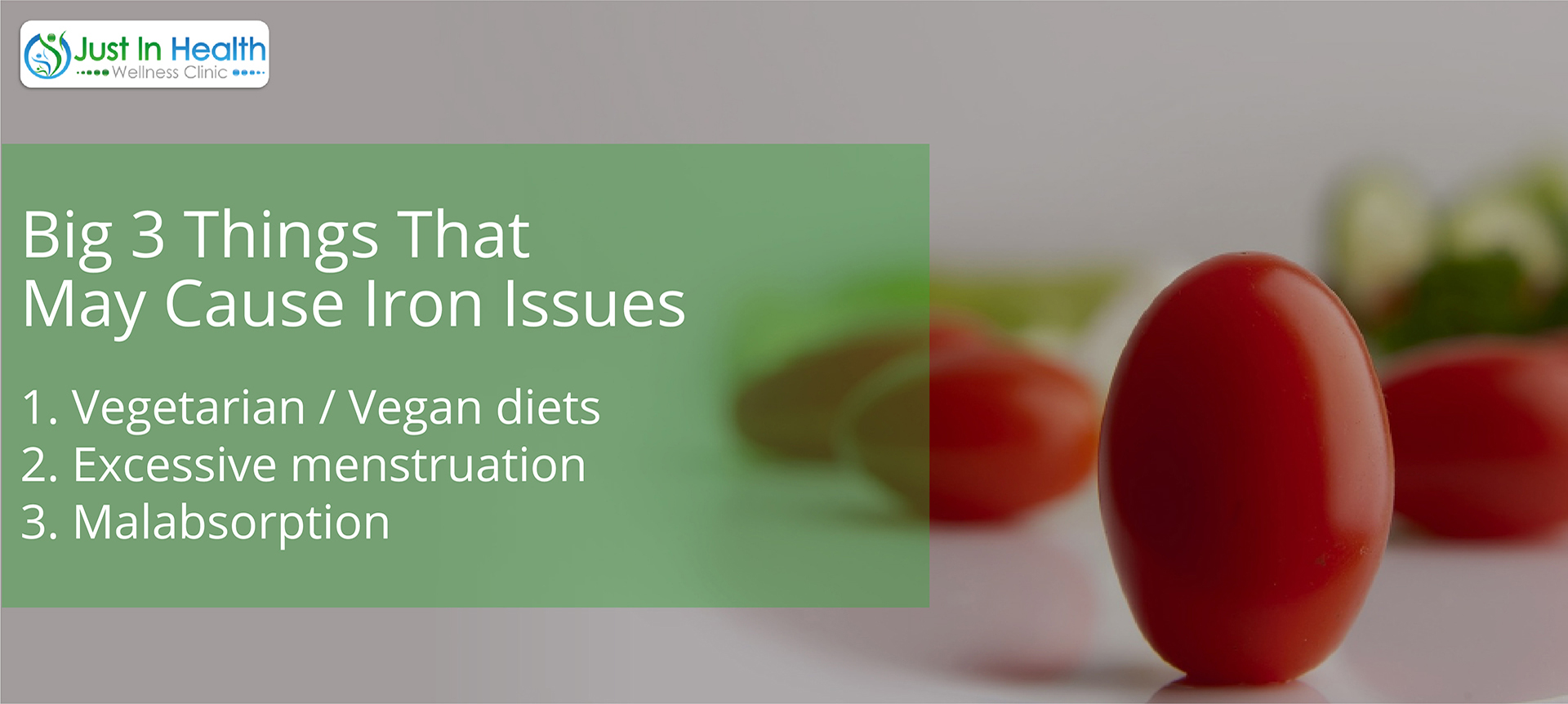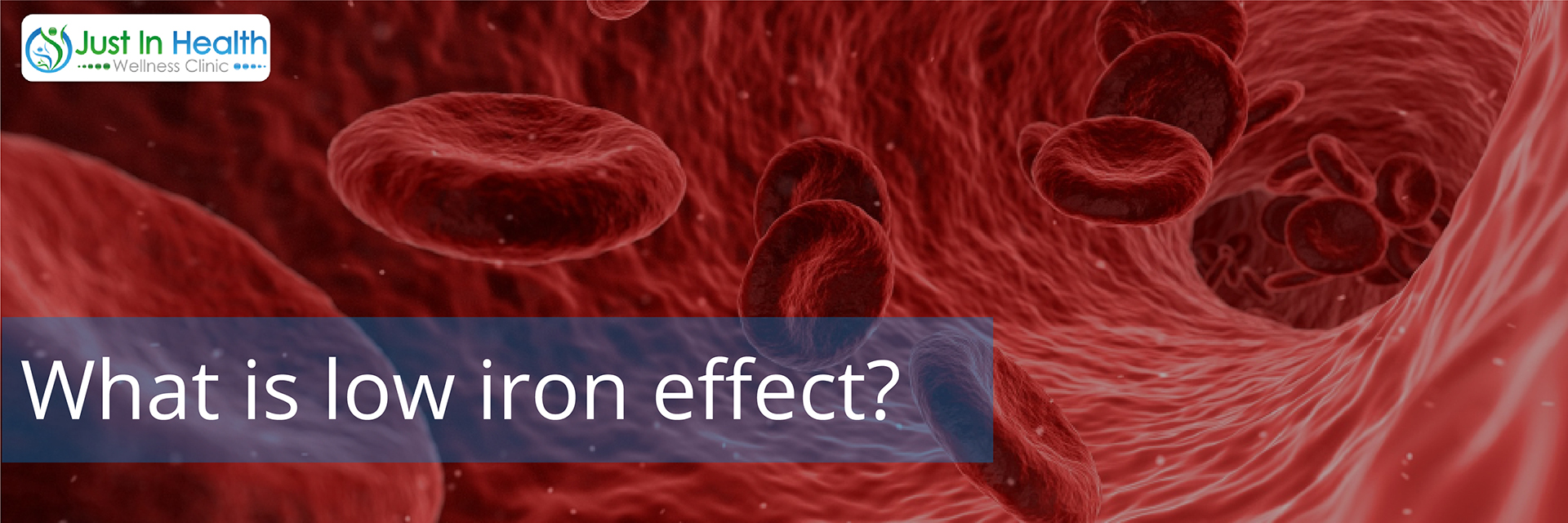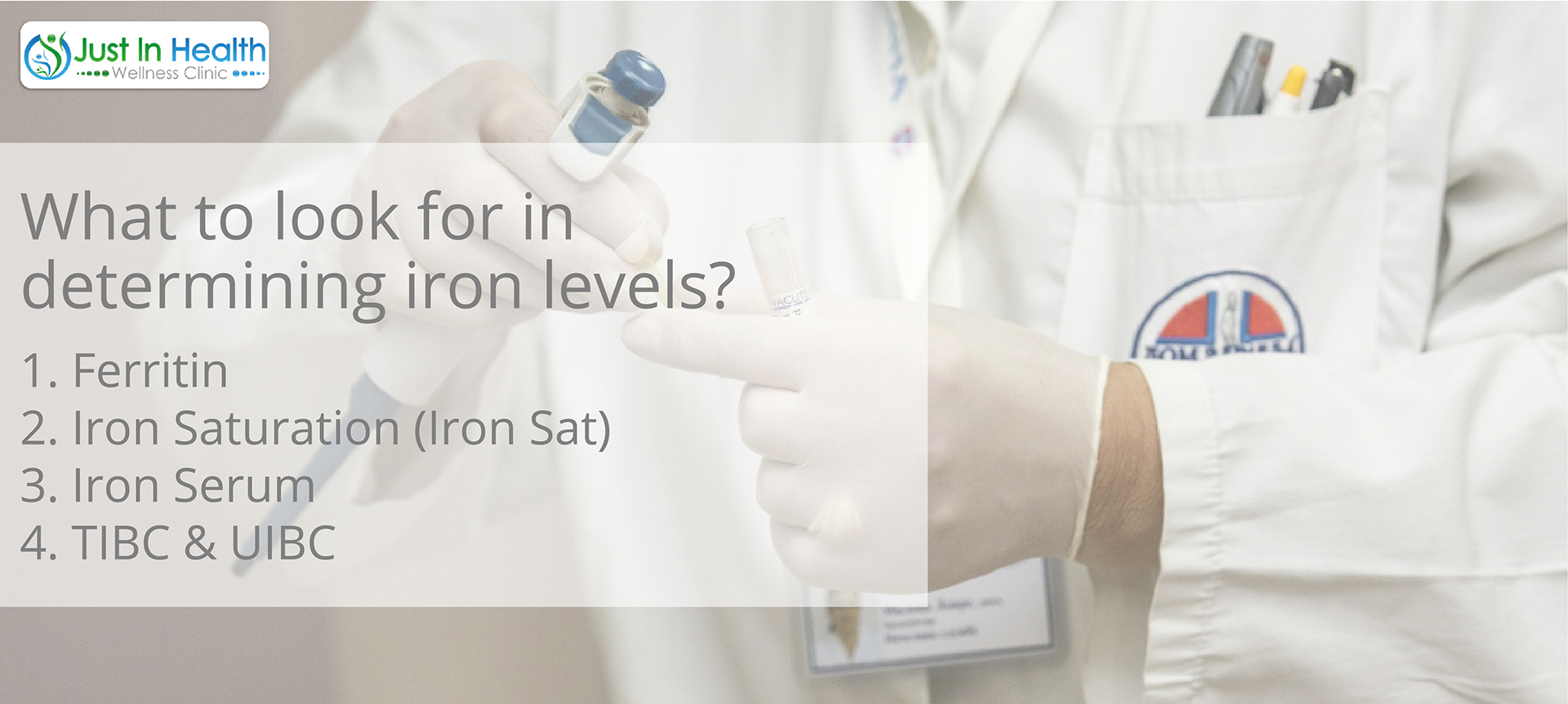

By Dr. Justin Marchegiani
Today’s video is going to be on hypothyroidism and low iron or iron-based anemia. Again, we’re going to talk about thyroid conversion; we’re going to talk about thyroid synthesis, as well as your thyroid activation. We will also touch upon your adrenal function and how it plays into anemia.
So off the bat, iron – really important. Your animal-based heme iron source is going to be the best. There are going to be plant-based heme iron sources, but those aren’t going to have a real big effect on increasing your ferritin and raising your iron saturation

So when we look at why the iron is not getting into where it needs to go, these are going to be the big three why’s.
Again, iron is really important. These are the 3 mediums we got to deal with animal based-sources. In my line, we have a product called, Iron Supreme, that’s a Ferrous Bisglycinate. A lot of conventional iron, like the ferrous sulfate, can be constipating, cause your stools to go black, not the best. So we have an amino acid blend one that works good, called, Iron Supreme.
There’s a process called iodination. And that’s basically binding iodine, tyrosine and thyroglobulin together in making your T4 molecule. T4 is tetraiodothyronine. So T4, really simple: it’s going to be your tyrosine, and it’s going to be 4 molecules of iodine around it – that’s going to be your T4.
We need iron to actually make this process – the iodination process that binds these iodines to the tyrosine up there. That is going to be iron dependent. So we need enough iron for that process. Low iron and T4 to T3 conversion is also really important because iron is also part of the five deiodinase enzyme as well. And so we have selenium as part of the enzyme, but iron plays a role of coming in here. And it is actually converting this molecule T4 to T3. How does it do that? It becomes in here like this and it's actually going to play a role at knocking that off. Again, selenium also plays a role with that, too. So low iron and T4 to T3 conversion is very important.
There’s some research showing there’s correlation with low iron (Fe) equals low cortisol.
low iron = low cortisol
Cortisol, an adrenal corticosteroid hormone produced by the adrenals. So we actually need cortisol to actually activate thyroid hormones. If you go look at the T4 to T3 conversion, one of the big things that’s needed in this conversion step is cortisol. So if we don’t have enough cortisol, that’s going to affect how we convert and activate T4 to T3. It’s also going to affect T3 pooling. We need enough cortisol to get T3 into the cell. So we can have T3 pooling and an increase in reverse T3, if we do not have enough iron – so really important.
Click here to have a functional medicine doctor help you with iron issues

Low iron affects T4 synthesis, iodination with tyrosine thyroglobulin and iodine. It affects T4 to T3 conversion with the iodination process and also affects cortisol in that conversion process. And also, iron is really important for thyroid hormone recycling as well –so very important.
 1. Ferritin: A storage for iron. It will go low when iron is low. So below 30, there is an issue.
1. Ferritin: A storage for iron. It will go low when iron is low. So below 30, there is an issue.
2. Iron Saturation (Iron Sat): This below 25, there is an issue.
3. Iron Serum: It isn’t really that big of a deal. It’s typically around 40-80 on average. You can have normal iron serum, though, and have these other things out of whack, though. So it’s good to look at iron serum. Sometimes we’ll see that high and these can be low. And we’ll see increase in inflammation. So it's good look at iron serum but it’s not going to be-all, end-all. Most people only focus on that.
4. TIBC & UIBC: Are binding proteins that go high when iron is low.
To access a highly absorbable iron supplement to boost your low iron levels, click here.
And again, these are your real good, your more complete, advanced iron panel. Ferritin, iron stat, iron serum, TIBC, UIBC. Your typical medical doctor may look at RBC, hemoglobin, and hematocrit, and see if they’re all low. So RBC below 4.1; haemoglobin below 11.5; hematocrit – I think, low 40’s. That will give you a pretty good idea of how to analyze your iron levels. And again, iron and anemia – iron-based anemia are deal busters. So if you don't get your iron levels looked at and assessed, you’re not going to fix your hypothyroidism issue.
Click here and have your iron levels looked at and assessed by a functional medicine doctor
Again, this is Dr J here. Click here and subscribe. Go below if you need help and you want to dig in, dig deeper your thyroid or other health issues, click below and schedule a consult. And again, subscribe for more videos coming your way. So, look for the live stream videos. We’re starting now on that, too.